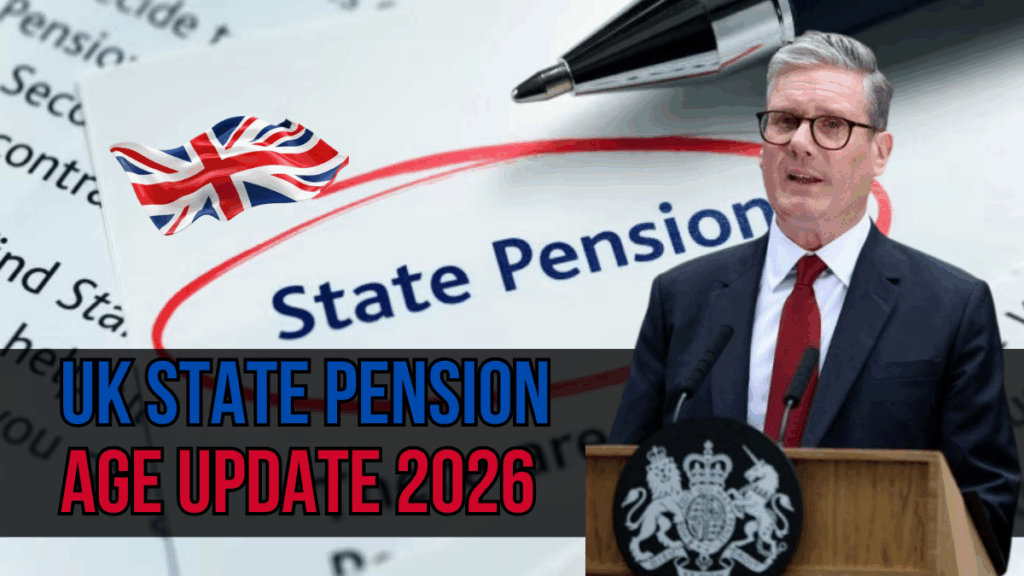The UK government has confirmed a phased increase in the State Pension age beginning in 2026, moving from the current 66 to 67 years by 2028. This decision reflects efforts to keep the pension system sustainable, given rising life expectancy and financial pressures on public retirement funds .
If you’re born between April 1960 and March 1961, you will see your pension age increase incrementally from 66 plus a few months. Those born after March 1961 will retire at 67. This shift impacts millions of future retirees, who must now replan retirement timing and saving.
Summary Table: UK State Pension Age Hike
Aspect |
Details |
|---|---|
Policy Name |
UK State Pension Age Increase |
Effective Period |
Starts April 2026, completes by April 2028 |
New Pension Ages |
66 → 67 (phased for births Apr 1960–Mar 1961) |
Who Is Affected |
Born between 6 April 1960 and 5 April 1977 |
Not Affected |
Born before 6 April 1960 |
Why It Matters |
Sustainability of State Pension system amid rising life expectancy |
Tools & Support |
Online calculators, gov.uk guidance, Pension Wise service |
Official Info Sources |
What’s Changing & Who It Affects
- Current State Pension Age (SPA): 66 years.
- Immediate Change: Starting April 2026, those born 6 April 1960–5 April 1961 will reach SPA at 66 years + 1–11 months, depending on birth month.
- Full Raise: From April 2028, SPA becomes 67 for all born after 5 April 1961.
Here’s a breakdown:
- Born Apr–May 1960: SPA = 66 years 1 month (May 2026).
- Dec 1960–Jan 1961: SPA = 66 years 8-9 months (Sept–Jan 2027).
- After Mar 1961: Full 67 on your birthday.
People born before April 1960 continue to qualify at 66. Future planned increases (to 68) are scheduled between 2044–2046 under the Pensions Act 2007 .
Why the Change?
- Longer lives: Average life expectancy has risen, increasing years spent in retirement.
- Financial sustainability: Adjusting SPA helps ensure the system remains solvent for future generations.
- Policy alignment: Follows mandates from the Pensions Acts (2007, 2014) and periodic reviews.
Financial Planning Implications
- Income gap: Expect a delay in pension payments by up to 11 months.
- Savings strategy: Consider allocating extra funds into personal pensions or ISAs.
- Workfront extension: Working longer may be necessary to bridge the retirement income gap.
- Automatic support: Free tools and advisory sessions can guide planning.
Benefits of Early Preparation:
- Prevent unexpected income shortfalls.
- Maximize National Insurance contributions 35 years give you the full new State Pension.
- Choose the best time to defer your pension for a higher weekly payout (5.8% annually).
Government Support & Tools
- Advance notice: Letters arriving 12–18 months before your new SPA.
- Online resources:
- gov.uk pension tools
- Age UK, Turn2us, PensionBee guides
- Consultations: Free appointments via MoneyHelper Pension Wise.
- Workshops: Available for employees in large organisations.
Frequently Asked Questions (FAQs)
1. Who will be affected by the SPA change?
A. Anyone born between 6 April 1960 and 5 April 1961 faces a phased increase to SPA. Those born after March 1961 will retire at 67. Anyone born before April 1960 is unaffected.
2. When do the new rules apply?
A. From 6 May 2026, adjustments begin and continue through March 2028, reaching full effect in April 2028.
3. Does this affect how much pension I get?
A. No. The total pension amount isn’t reduced—only the start date is delayed .
4. Can I claim early?
A. No, State Pension must start at or after SPA. However, private pensions may allow earlier access (usually reduced).
5. How can I check my exact SPA?
A. Use the official GOV.UK State Pension Age calculator, or check your dated pension forecast letter.
6. Should I defer state pension?
A. You can. Deferring increases your payments by 5.8% annually. Premium depends on how long you defer.
7. Do I need to take action?
A. Not immediately. But reviewing personal savings, pensions, and asking employers about options is advisable now.
In Summary
- SPA is rising from 66 to 67, phased between 2026–2028.
- Plan ahead—reassess financial goals, work longer, contribute more.
- Free tools & advice exist to support the transition and help avoid retirement income gaps.
For additional info, visit:
- GOV.UK State Pension Age Review
- Check your State Pension age
- thetimes.co.uk
- thescottishsun.co.uk
For More Information Click Here





